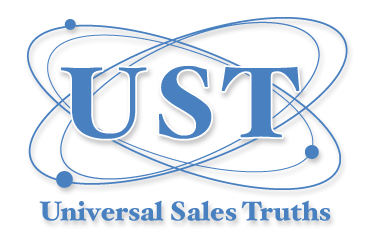| I believe there are three major components to any professional sales executive. The first two are obvious. The final third is subtler, but in my opinion could be the most critical to long-term success.
Let’s take a look at all three from a high-level perspective.
· BASIC SALES SKILLS — most entry-level sales people in corporate America are provided with a sales class that focuses on the essential elements of selling. Topics covered include prospecting, lead qualification, objection handling, trial closing, and ultimately, how to ask for the order. When I started with Burroughs Corporation back in 1976, all new hires were sent away for a week of sales training. Most of the time was spent on very basis sales skills, which seem obvious to most sales executives today but to a recent college graduate are eye-opening. In addition, a solid sales school should offer guidance regarding where you can find your ideal prospects. Ideal prospects are those that would most likely be motivated to purchase your product or service based on their business needs.
· PRODUCT AND INDUSTRY TRAINING — The company you represent will most likely offer very specific product knowledge training. This will involve the details of your product or service. It will get into great detail on the features, benefits, and hopefully the business value it will offer your prospects and clients. In addition, a great amount of time should be spent on how your product or service stacks up against the competition. In other words, what is your competitive advantage?
· THE FINAL THIRD — You are probably thinking, “What else is necessary to be successful long term in professional sales?” After all, if you have excellent sales skills, know how to locate your ideal prospect, and understand your business value as well as the competition, what else is needed? The final third, as I refer to it, is all the other factors that contribute to success in sales that are not specifically related to traditional sales school or sales training. However, they are equally important to long-term success. As part of the research for my book, I interviewed Jim, a career sales exec in the HR software business. Jim had recently taken a position as a sales mentor — a company hired him to offer guidance and support to their sales team. The thought process was they needed some gray hairs to augment the junior reps they were hiring. The sales reps would still report to a traditional sales manager. Jim’s role was to provide expertise based on his wisdom and knowledge from a career in sales.
The philosophy of this company was to hire quality sales candidates directly out of college and provide extensive training before releasing them into the field. In fact, the training went on for several months. Before graduation, each student had to pass a fairly difficult exam and be able to stand up in front of a group and do a PowerPoint presentation on the entire suite of software products they would be selling. Additionally, the employees were trained in traditional sales in terms of cold calling, objection handling, prospecting, negotiating, and how to close business, so when they graduated they knew the industry they would be selling to, their products’ advantages, the competitive landscape, how to make formal presentations, and basic sales skills. Conventional wisdom would tell you these folks would be ready to take their territories by storm! Since I was writing a book to help sales people get to the next level, I was very anxious to talk to Jim and get his insight on what areas these junior reps struggled with. His answer took me completely off guard: “They don’t know what they don’t know.” Wow. What was I supposed to do with that information? I wondered. However, the more I spoke with Jim, and the more I thought about it after our meeting, the more sense it made. Companies can’t manufacture professional sales execs in a six-month training program. There is no substitute for on-the-job training. Learning product presentations, technical advantages, and how to handle objections does not make successful sales professionals! That is where the final third comes into play. The final third is more about life skills that are layered above the first two-thirds. These skills are critical to long-term success in sales. In fact, in my opinion, they are critical to success in business period. But since success in sales is primarily based on achieving quota, this final third becomes even more critical.
UST’s mission is to focus on this third. The areas include, but are not limited to: – Building trust and respect with your prospects and clients. For without trust and respect, it is virtually impossible to win business. – Leveraging various resources to maximize productivity – Understanding how to translate your competitive advantage to real business value – Crafting a message that resonates with C-level executives – Financial selling strategies – Developing effective listening skills – Overall strategies to keep you focused on the prospects and clients that offer the highest potential
Unfortunately, many of these important skills take years to perfect since they are learned in the real world of professional sales.
Please click below to see an overview of the final third workshops and services.
|
